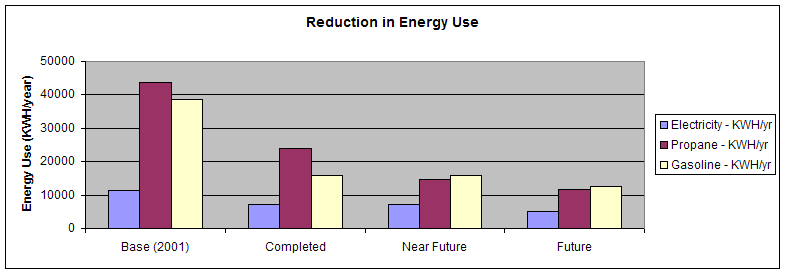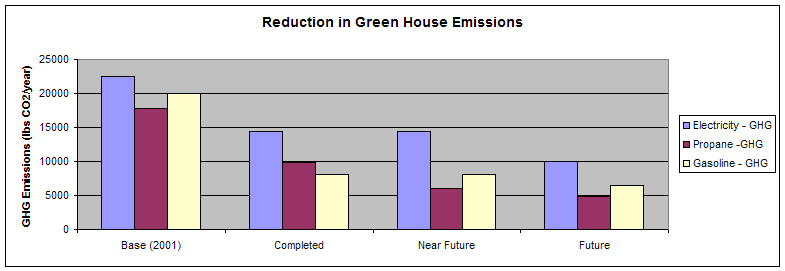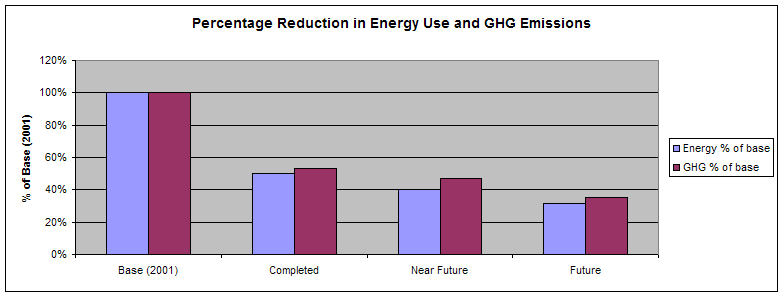
Search
The Renewable Energy site for Do-It-Yourselfers

(more charts below)
Blue is Electricity, Violet is Propane, Cream is gasoline
Can we cut our energy use and green
house gas emissions by 50%?
Yes -- Results To-Date:
(1)
| Reduction in Energy Use |
48,600 KWH/year |
A 50% reduction |
| Green house gas reduction |
29,800 lbs/year |
A 46% reduction |
| Total cost of projects |
$8,780 |
|
| First year saving on energy bills |
$3,930 |
44.6% first year return |
Projects now in the works will reduce
energy use by an additional 14,600 KWH per year, and green house gas
emissions by and additional 7,200 lbs per year.
How hard is it?
Not very hard -- see the details
on the projects.
No lifestyle changes needed -- the next 50% might require some lifestyle
changes, which is fine.
What will it cost?
Our total cost to date is $8,800.
This may seem like a lot,
but look at the rate of return (below), and the protection that this buys
against future fuel price increases.
How much money will we save?
Our estimated first year saving is $3930
- this is a first year return of
45%. This will go up over time as fuel prices rise.
(1) The small print:
This includes all energy to run and heat our home and gasoline to run the car
(i.e. our total electricity, propane, and gasoline usage).
It does NOT include the energy used to produce and distribute the things we buy or use.
Maybe someone has some ideas on a program to address these areas?
Investing in energy saving projects
to reduce green house gas emissions is a win-win situation -- you can do
something that is good for the planet and also earn a good economic return.
The charts below
show our reductions in energy use and green house gases, as well as the related costs and returns.
Details on the
individual projects are here.



Some notes on the graphs:
Energy use in electricity,
propane and gasoline are all expressed in kilowatt hours so that they can be
compared easily. If you want to convert to the usual gallons: 1 gallon of gasoline =
36.6
KWH, and 1 gallon of propane = 27.0 KWH. And, if you want to convert to
BTUs, there are 3412 BTU per KWH.
The "Base 2001" usage is from utility bills.
Some of the "Completed" results are from utility bills, and some are from estimates,
because
the changes will not go into effect until the heating season. All of the
"Future" results are from estimates. The
projects descriptions give the methods I
used to estimate energy use and GHG reductions -- I believe them to be
reasonable estimates.
We have supplied the labor to do a
number of the projects, so the dollars spent are lower as a result.
Gary 08/04/06




